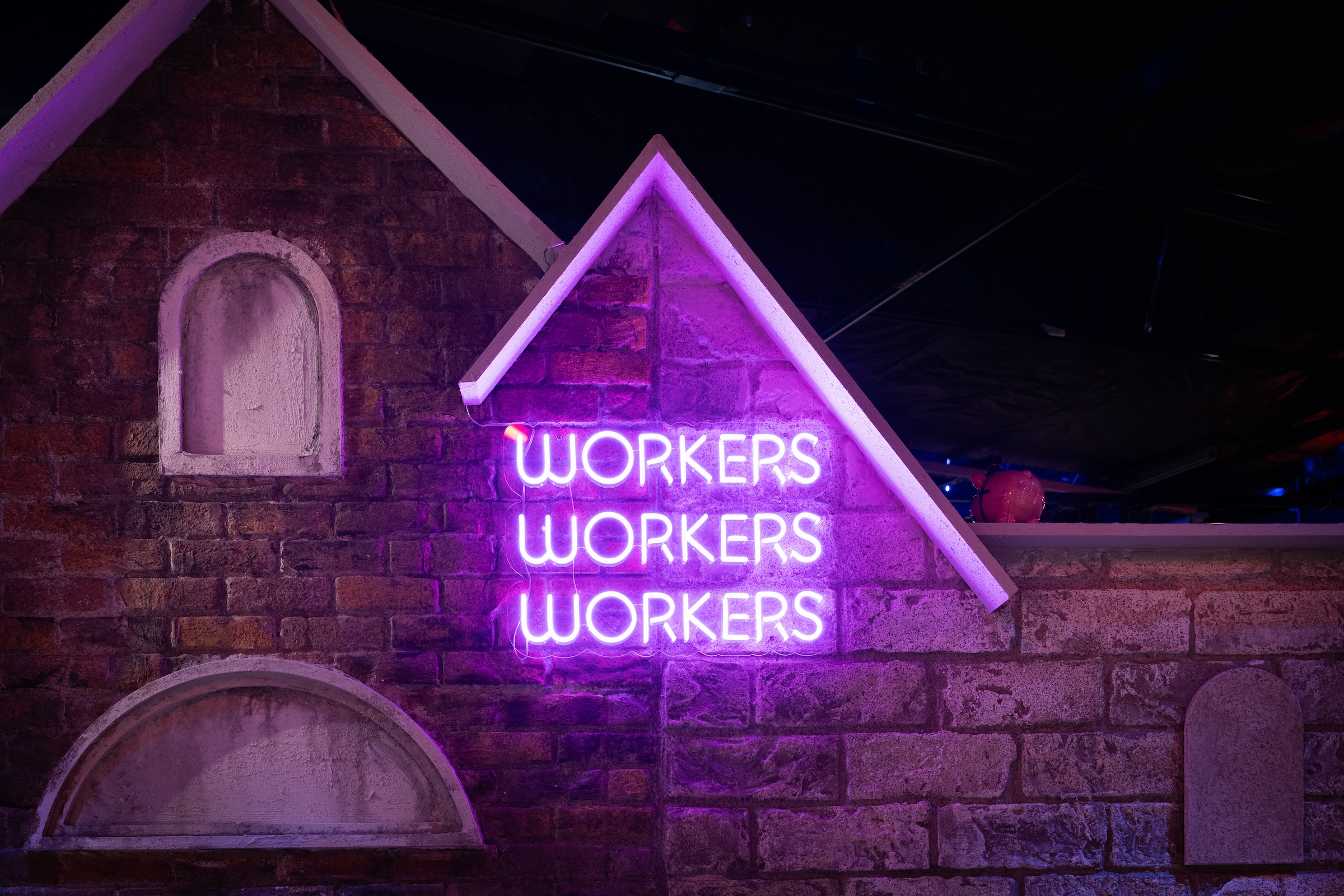LONDON — In the United Kingdom, “hard graft” is a colloquialism referring to tough, extensive, and honest labor. An eponymous show at the Wellcome Collection marks the institution’s latest foray into the linkages between health and social stratification. A fulsome extent of audio commentary, contemporary works, and slow-moving films alongside historic art and archival material forces us to confront the harmful conditions in which many workers live, labor, and suffer. The exhibition calls, in turn, for a bit of visitor effort.
The apparent comfort of seating provided around the gallery, for instance, is merely physical. There is nothing easy in learning that a proliferation of chemical plants on former plantation land in Louisiana is causing cancer on an industrial scale for local working-class Black communities, many of whom are the descendants of enslaved people. The research group Forensic Architecture poses the question in the title of their film: “If toxic air is a monument to slavery, how do we take it down?” (2021). This exposition of the sickening inhumanity of capitalism is made with the clinical approach that characterizes all of the collective’s work.
American artist and activist Sheila Pinkel finds a further legacy of slavery alive and well in the United States penal system. In several states, incarcerated people manufacture furniture which is then sold to government buildings and universities. Pinkel evokes a grim trade show through Site / Unseen: The Prison-Industrial Complex (1998–2024), a series of photos of these items culled from a catalog she discovered of objects made in California prisons in 2001. Desks, chairs, and shelving units poignantly manifest the invisible lives of those behind bars, evoking them in the exhibition space. A sign reading “no photography” next to this piece at Wellcome, quite apt somehow, is suggestive of classified material.
Drawing a connection to the UK, “Our Journey” (2019) underscores the unchecked mistreatment and abuse of live-in domestic workers, deemed “modern slavery” by numerous human rights organizations. The film plays it straight, presenting testimony from 12 traumatized workers who are shot up close. The project, on which workers were invited to collaborate with scholars Joyce Jiang and Tassia Kobylinska over the course of four months, was bitterly moving.

Despite the grit and realism of these pieces, Hard Graft does not lack imagination. Money Makes The World Go Round (2024) pulls together dozens of ceramic works, piggy banks, and a stage-like cathedral setting that references historic church occupations led by sex workers in 1975 and 1982. In an arched window where you might expect to find stained glass, nonbinary actor and author Mendez appears on film to deliver a sermon recounting their arrival in London and drift into sex work, honoring the long history of the profession and the movement calling for rights and protections.
The Wellcome Collection is the exhibition space of a charitable foundation dedicated to better medical science and environmental health, which sounds like a very safe, fundable mission. But with Hard Graft, curator Cindy Cissokho has demonstrated that art around health need not be neutral and anodyne. In fact, it has to be quite the opposite: political and galvanizing. This exhibition is mostly difficult viewing, and indeed, that can be the only outcome of a survey of the planet’s most adverse and unjust working conditions.



Hard Graft: Work, Health and Rights continues at the Wellcome Collection (183 Euston Road, London, United Kingdom) through April 27, 2025. The exhibition was organized by Cindy Sissokho.

